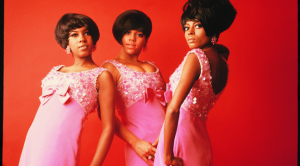
Introduction
When we talk about The Supremes, we’re talking about a phenomenon. They were the epitome of Motown’s crossover success, with Diana Ross leading the charge, her voice a beacon of glamour and sophistication. But with “Love Child,” they took a sharp turn, addressing a subject that was far from glamorous: the plight of a child born out of wedlock. This was a time when such matters were whispered about, not shouted from the rooftops of popular music.
Background
The song’s narrative is powerful. It tells the story of a young woman facing the stigma and hardship of being born to a single mother. It’s a tale of poverty, shame, and the struggle for acceptance. Diana Ross’s delivery is nothing short of masterful, conveying a sense of vulnerability and defiance in equal measure. You can hear the pain in her voice, but also a quiet strength, a determination to rise above the circumstances.
Musically, “Love Child” is a departure from The Supremes’ earlier, more polished sound. There’s a grittier, more soulful edge to it, reflecting the song’s subject matter. The production is still distinctly Motown, with its driving rhythm and catchy hooks, but there’s a rawness that sets it apart. The song has a very strong story telling aspect to it.
The impact of “Love Child” was immediate and profound. It shot to number one on the Billboard Hot 100, proving that a song with a socially conscious message could be a commercial success. It also sparked a national conversation about unwed mothers and the challenges they faced. For many, it was a wake-up call, a realization that these were real issues affecting real people.
In the context of The Supremes’ career, “Love Child” marked a significant turning point. It signaled their willingness to tackle more serious themes, to move beyond the bubblegum pop that had defined their early hits. It was a bold move, and it paid off, cementing their status as not just hitmakers, but as artists with something to say.
Video
Lyrics
🎵 Let’s sing along with the lyrics! 🎤
Started my life in an old, cold, rundown tenement slumMy father left, he never even married momI shared the guilt my mama knewSo afraid that others knew I had no nameYou think that I don’t feel loveWhat I feel for you is real loveIn other’s eyes I see reflected a hurt, scorned, rejectedLove child, never meant to beLove child, born in povertyLove child, never meant to beLove child, take a look at meStarted to school in a worn, torn, dress that somebody threw outI knew the way it felt to always live in doubtTo be without the simple thingsSo afraid my friends would see the guilt in meThis love we’re contemplating, is worth the pain of waitingWe’ll only end up hating the child we may be creating